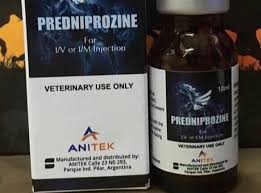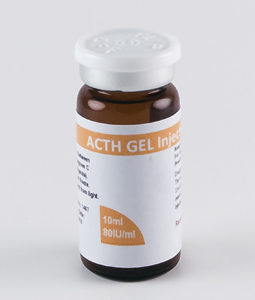Predniprozine is a synthetic corticosteroid used for many conditions in both human and veterinary medicine. Its anti-inflammatory activity is approximately four times that of hydrocortisone. Corticosteroids are extremely effective anti-inflammatory drugs because they affect the inflammatory process at so many different levels. It is rapidly converted to Predniprozine in the liver and, in most instances, these drugs are considered to be roughly equivalent. Corticosteroids have strong beneficial effects but a definite potential to cause negative side-effects if abused.
USE Predniprozine for Dogs and Cats
Predniprozine is used for a wide variety of conditions in both dogs and cats. It may be used in emergency situations including, anaphylactic reactions, spinal-chord trauma and many forms of shock. It is used to manage and treat immune-mediated disease such as immune-mediated hemolytic anemia or thrombocytopenia; many CNS disorders; some neoplasia; dermatologic diseases; allergic reactions such as asthma, hives and itching; inflammatory orthopedic diseases; endocrine disorders including Addison’s Disease; respiratory disease with an inflammatory component; inflammatory bowel diseases; and many other conditions.
Cats may require higher doses than dogs in order to achieve clinical response but they are less likely to develop adverse side-effects.
Horses
Predniprozine is given systemically to decrease inflammatory and immune responses. For years it was used orally to treat Chronic Obstructive Pulmonary Disease (COPD) and other allergic or immune-mediated disorders. Recent work has demonstrated that horses do not absorb oral Predniprozine although they do absorb oral Predniprozine. Other corticosteroids are preferred for intra-articular use.
Prednisone Side Effects
- Systemic side-effects of corticosteroids generally are dependent on dose and duration of treatment. Short-term use of prednisone is unlikely to cause adverse effects. Adverse effects are more common in animals on immunosuppressive doses.
- Dogs: Side effects seen in dogs include polyuria, polydipsia, polyphagia, poor haircoat, GI disturbance, diarrhea, vomiting,






Reviews
There are no reviews yet.